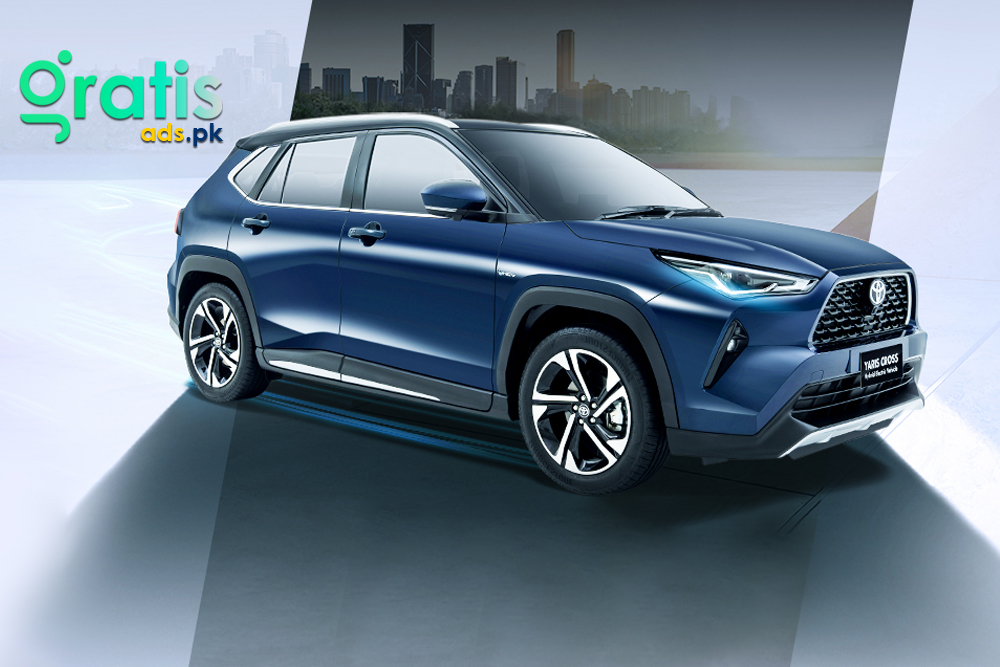
Toyota Car Maintenance Tips for Pakistani Roads
You want to take great consideration of your Toyota car if you need it to endure and function admirably, particularly on the streets in Pakistan. On these roads, many things can go wrong, like potholes, dust, and bad weather that can hurt your car. This manual will let you know all that you want to be aware of to keep your Toyota running effectively and securely on Pakistan’s many kinds of streets.
Regular Checkups
Make sure you get your Toyota serviced regularly so we can catch issues early and fix them. As a result, it will remain secure and reliable.
Importance of Routine Checkups
The most crucial aspect of car maintenance is routine inspections. They aid in the early detection of issues, ensuring your Toyota’s safety and dependability. Spotting issues early helps maintain your vehicle’s appearance and save on repair costs. Regular maintenance keeps the engine running efficiently, saving fuel and enhancing your driving experience.
Recommended Schedule
Assuming you maintain that your vehicle should run well, you ought to have it looked at every 10,000 kilometres or like clockwork. Your Toyota’s owner’s manual may include specific maintenance schedules. Following these plans ensures timely checks and servicing for every critical part, from the engine to the suspension.
With preventative maintenance, your vehicle’s lifespan is extended, ensuring safety and reliability on Pakistan’s diverse roads, providing peace of mind as you drive. In the owner’s manual, you can find specific instructions for your model. Additionally, remember to set cautions to remind you to do your customary support.
Fluid Levels and Their Importance
To get the most out of your Toyota car and keep it running smoothly for as long as possible, it’s important to keep the fluid levels in check.
Toyota car Engine Oil

Applying oil to the motor’s moving parts prevents excessive wear and keeps the engine running smoothly for an extended period. Moving parts stay cool and keep running smoothly when there is a barrier between them. For Toyota cars, the manufacturer recommends checking the oil level once per week and changing it as needed, typically every 5,000 to 7,500 kilometres or as specified in the owner’s manual.
Regular oil changes are crucial for Toyota car maintenance, ensuring smooth engine performance, saving on fuel costs, and reducing emissions.
Toyota car Brake Fluid

Brake fluid is what you need to stop safely. If you don’t have enough brake fluid, your brakes won’t work as well, making you a risky driver. Ensuring you check the brake liquid level consistently is a significant piece of ordinary upkeep. If there isn’t enough, add the fluid that the manufacturer recommends to keep the brakes working well and keep you safe on the road.
Keeping an eye consistently can assist you with finding holes or brake issues before they cause a great deal of harm. This will keep you calm while driving a Toyota car and save you money on repairs. The owner’s manual is the best place to learn how to check and change your Toyota’s brake fluid.
Coolant
Coolant prevents engine overheating by absorbing and dispersing heat generated during operation. By keeping the motor at the right temperature, you can work on the two its capability and its life. Check the coolant level frequently between the tank’s minimum and maximum marks to prevent engine breakdown or excessive heat.
By flushing the coolant to remove contaminants and adding chemicals that prevent it from freezing and rusting, it maintains its good performance. If you follow these tips, you can keep your Toyota car engine from burning under a variety of driving conditions. Consequently, it will be more reliable and less likely to require costly maintenance. Your Toyota’s owner’s manual provides specific guidelines on coolant volume and maintenance intervals.
Tire Care and Maintenance of Toyota car
Regularly checking tire pressure, monitoring tread wear, and adding air as needed ensures long-lasting tire performance and helps prevent accidents.
Checking Tire Pressure
The right amount of air in your tyres is crucial to your vehicle’s speed and safety. Driving with underinflated tyres increases the likelihood of tyre blowouts and accelerates tyre wear, both of which reduce gas consumption. You ought to utilize a solid measure once per month to check the strain in your tyres and ensure they are filled to the maker’s suggested level.
When the tyres are properly inflated, the vehicle is easier to steer, stop, and move. The ride is safer and more comfortable as a result. Regularly checking and maintaining tire pressure extends tire life and reduces roadside issues.
Toyota car Tire Rotation and Alignment
To ensure even wear and a longer lifespan, rotate your tyres every 10,000 kilometres. To ensure that all of your trees have the same amount of tread, you can move them around in your Toyota car. Pivoting your tyres regularly will save them in top shape for grasp, taking care of, and gas mileage, making your outing on Pakistani streets more secure and more pleasant. Your alignment should be checked once a year, just like your tyres.
Inspecting for Wear and Tear

Check your tyres regularly for damage and excessive wear to ensure your safety and that of your vehicle. If you check your tyres regularly, you might discover issues like holes, cracks, bulges, or worn-out tread that could harm your tyres or put you in danger. To ensure optimal stability, control, and grip on Pakistani roads, it is essential to repair worn or damaged tyres as soon as possible, particularly in all weather conditions.
Dealing with Potholes and Rough Terrain
The suspension and wheel arrangement of your Toyota car is particularly liable to get harmed by potholes and other unpleasant ground. At the point when you take your vehicle in for a customary fix, ensure the suspension is checked for indications of wear, similar to an unsteady ride or peculiar clamours. You will travel in safety and comfort if you address these issues promptly. In addition, hitting potholes and other bumps in the road can cause your wheels to be out of alignment, which can lead to uneven tyre wear and unsafe driving.
Have your wheels aligned once a year or right after you hit a big ditch to prevent these problems. By keeping the suspension and wheels adjusted, you can keep your Toyota car moving along as expected and for longer on Pakistani streets.
Managing Dust and Pollution
To keep your Toyota clean and prolong the life of its paint and other components, it is essential to keep trash and pollution out.
Toyota car Air Filter Maintenance

The air channel keeps residue and garbage from entering the motor, guaranteeing ideal execution and life span. Every 15,000 kilometres or more, you should check and replace the air filter if you frequently drive in dusty or polluted environments. A perfect air channel diminishes outflows, further develops mileage, and energizes effective motor ignition.
As well as safeguarding the driving force of your Toyota from unsafe foreign substances, keeping a spotless air channel likewise adds to smoother activity and less effect on the climate. Always consult your Toyota’s owner’s manual for specific recommendations on when to replace your air filter based on the model and driving conditions of your vehicle.
Toyota car Cabin Filter Replacement
The cabin filter must remove pollutants like dust and pollen to keep the air inside your car clean. It is recommended that you change the lodge channel each 15,000 to 20,000 kilometres to keep the air inside the lodge solid and pleasant for yourself as well as your visitors. The central air framework in your vehicle works better, and the air quality inside is better when the lodge channel is perfect.
For people who have trouble breathing, the fact that germs and dust cannot accumulate on indoor surfaces is excellent news. Change the Toyota’s cabin filter as part of routine maintenance. On the road, this will ensure the comfort and safety of everyone inside.
Handling Extreme Weather Conditions
It is essential to maintain your Toyota’s battery regularly because extreme temperatures can have a significant impact on it. Ensure the battery terminals are spotless and safely associated with keeping the vehicle from experiencing difficulty beginning. Also, check the batteries every three to four years or change them if you notice signs of wear, like dim headlights or a slow start.
A crucial function of your cooling system is keeping the engine at a constant temperature, especially in hot weather or when there is a lot of traffic. If you regularly check the level of the coolant and add more as necessary, the engine won’t get too hot.
Regular Cleaning and Washing
- You should wash your car often to get rid of pollutants and dirt that can damage the paint.
- To try not to scratch the paint, utilize a delicate vehicle cleanser and a delicate fabric or wipe.
- To dispose of any cleanser rubbish, completely wash with clean water.
- To prevent water spots, use a delicate, clean microfiber towel to dry your vehicle.
- By regularly vacuuming the interior, dust, dirt, and other particles can be removed from the carpets, floor mats, and seats.
- Make sure you use the right cleaners and conditioners to keep the seats, door panels, and dashboard surfaces looking good and lasting.
- Wipe down surfaces with a microfiber material to take out buildup and fingerprints.
- Clean the inside mirrors and windows with glass cleaner and a lint-free cloth for streak-free results.
Frequently Asked Questions (FAQs)
Every month, make sure the fluid levels in your Toyota are at the recommended levels.
Unusual noises, a bumpy ride, and uneven tyre wear are all indicators.
Maintain proper tyre pressure, check the suspension system regularly, and have wheel alignments checked.
Conclusion
You need to pay close attention to the little things and keep up with your Toyota car’s maintenance if you want it to run well on Pakistani roads. Your vehicle will continue to be dependable, secure, and fuel-efficient as long as you follow these fundamental maintenance guidelines. Checking and maintaining fluid levels regularly, such as engine oil, coolant, and brake fluid, helps to prevent mechanical issues and ensure the best performance in a wide range of environments. To ensure your safety and extend the life of your tyres, it is essential to properly inflate, rotate, and align them when driving on city streets or country roads.






